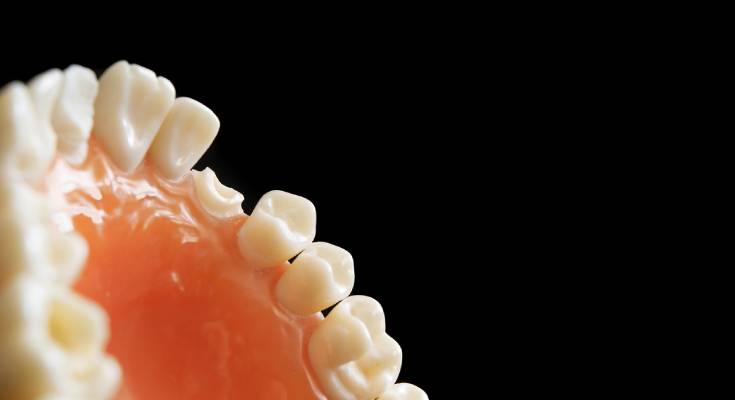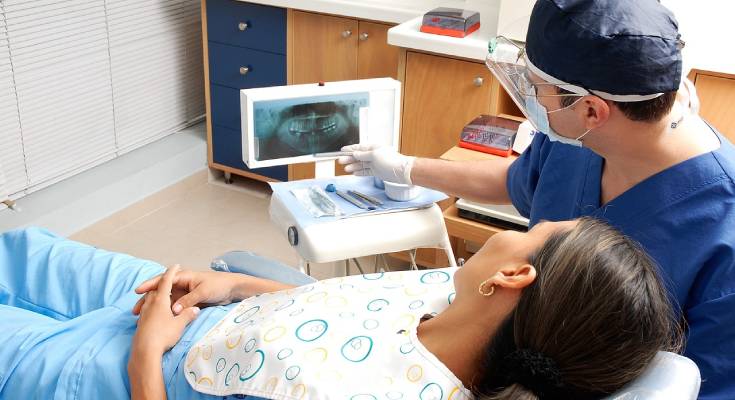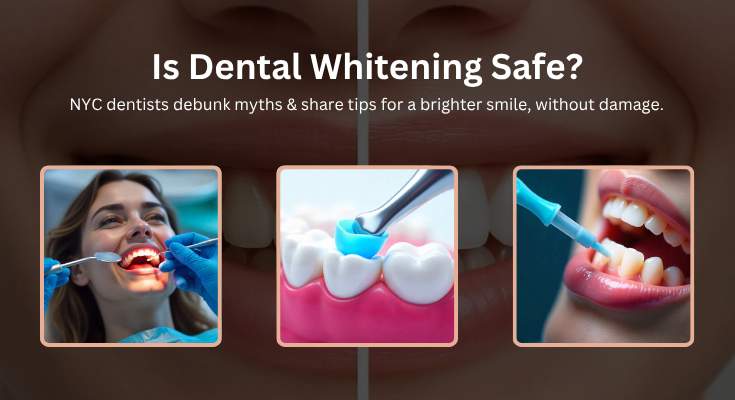The Link Between Oral Health and Diabetes
Oral care specialists like dentists and periodontists are thought of as experts responsible for maintaining your smile. Now, it’s becoming clear how specialists like 65 Broadway Dental are actually essential care experts for people with health conditions.
Diabetic patients worldwide encounter various oral health issues, but few are able to trace the connection back to their oral hygiene.
Oral Health Issues Tied to Diabetes
Diabetes patients are more vulnerable to oral health issues than people without the disease. It makes knowledge about the issues and their symptoms can be crucial to making an early diagnosis.
Dry Mouth (Xerostomia)
Many diabetic medications come with side effects, a common one being dry mouth. An unpleasantly dry mouth leads to conditions that favor oral germs, leading to flourishing microbial populations. Also, without saliva, food particles are left untouched, worsening teeth and gum conditions.
Tooth Decay
The risk of tooth decay and tooth loss is especially prominent among people suffering from diabetes. The abnormal amounts of sugar in the blood eat away at tooth enamel, rendering it vulnerable to oral bacteria. Bad oral bacteria create large volumes of acids, which damage the teeth. Usually, saliva would neutralize these acids, but with a dry mouth, saliva isn’t present in an effective volume.
Gum Disease (Periodontitis)
Periodontitis is a severe oral health condition that starts small as gum inflammation, bleeding, or swelling. Most diabetics who ignore the initial symptoms and regular dental checkups are left to rue their delayed action. The condition, Periodontitis, is one that witnesses infection-borne damage to the bone and tissue supporting teeth.
Delayed Healing
Diabetics display slow healing because of high blood sugar and poor circulation. These conditions inhibit healing of oral issues, starving tissues of the oxygen and nutrients needed for efficient repair.

Altered Bite Alignment & Shifting Teeth
Diabetics are more likely to face advanced gum issues, such as gum recession or gum disease. The loss of gum volume can cause teeth to shift, altering the person’s bite. The latter causes the loss of connective tissue and bone, leading to loose or shifting teeth.
The Relationship Between Oral Health and Diabetes
Oral well-being can affect the well-being of diabetes patients and the other way round. This two-way relationship highlights why people with diabetes must stay vigilant when it comes to oral care.
Uncontrolled or poorly controlled diabetes can lead to the following oral health issues:
Altering Microbial Populations
Diabetes is a condition in which individuals suffer from altered body conditions. These evident changes cause a shift in conditions and ensure that bad acid-producing mouth microbes thrive. It creates conditions where bacteria-produced acids eat away at the teeth and damage the gums.
Lowered Immune System Defences
Diseases like diabetes lower the immune system’s abilities due to excessive amounts of blood sugar. Tissues requiring repair materials are starved of them due to poor circulation and excessive sugar levels.
Shunning mouth care makes management of diabetes difficult because:
Sugar Surges
Oral infections can cause sugar levels to surge, making controlling the overall blood sugar levels difficult. This showcases how dental health affects overall health and why patients with diabetes cannot be negligent.
Rising Health Conditions Risk
Diabetics have a higher risk of heart conditions; the alarming part is how neglecting oral health raises the risks. Inflammation can lead to systemic inflammation, a bad sign for the heart and its surrounding vessels.
Poor Quality of Life
Living with chronic mouth pain or embarrassing oral hygiene issues can cause other issues for people with diabetes. It can lower their confidence and affect their eating habits, leading to a lower quality of life.
The Importance of Oral Health
Since poor oral health can exacerbate various health conditions, improving oral hygiene is essential.
Ignoring basic oral care for a prolonged period, along with other poor habits, can lead to tooth and gum disease. When gum disease becomes unbearable or life-altering, patients must turn to Periodontics for gum treatment through various procedures.
Exceptional oral health aids your well-being, since your brain’s capability and oral health are linked. The extra perks of good oral hygiene are a bright smile, fresh breath, and confidence!
Three Changes Diabetes Patients Can Use to Manage Oral Health
A combination of poor oral health and diabetes can be addressed by focusing on small but routine steps. These simple changes can make a world of difference if you’ve been struggling to tackle the condition.
Oral Care
Flossing once a day and brushing twice a day are two simple steps that make an immense difference to oral health and diabetes.
Visiting a dentist semiannually is necessary for people looking to manage their diabetes through oral care. These frequent visits will be instrumental in identifying any early signs and symptoms of gum disease or teeth issues.
Other than this, using the correct toothpaste and toothbrush is essential good oral practice to follow. Using a soft-bristle toothbrush for brushing and changing once every three months is another good habit to adopt.
Dietary Changes
Like people with oral diseases, diabetics must be vigilant about what they eat. Improving oral health and diabetes management will require individuals to stick to a regulated food plan.
Sugary foods should be limited or replaced completely. Replace damaging sugar-rich food with ones rich in calcium, fiber, and vitamin D. These components are commonly found in dairy, fruits, and vegetables, preferably leafy green vegetables.
Carbonated and sweetened drinks accelerate tooth decay and are likely to impact diabetic patients more than non-diabetics. Opting for unsweetened drinks or even just water is ideal, as it also washes away food debris.
Lifestyle Changes
Maintaining oral health and managing diabetes will require more than changes to diet and oral hygiene. Additional steps must be taken to adjust your lifestyle in a way that favours better health, oral, and overall.
Doctors recommend opting for routine physical activity to bolster circulation and normalize blood sugar levels.
Stress also has a negative impact on diabetes management, therefore affecting oral health as well. Individuals with both issues must adopt stress-reduction methods such as yoga and meditation into their routines.

Tips to Improve Diabetes Management & Oral Health
Diabetic people can adopt extra steps to ensure their oral health does not deteriorate due to their health conditions. Small but meaningful oral care improvements are:
- Brushing twice and flossing once a day
- Using an appropriate soft-bristle toothbrush
- Brushing using the correct brushing technique suggested by your dentist
- Rinsing your mouth after meals
- Changing your toothbrush as often as every 3 months
- Regular visits to your dentist for cleanups
Implementing the above basic steps is simple and can prevent further damage to your teeth and gums. It can prevent oral issues from being added to mounting problems diabetes can cause.
How Dental Experts Aid in Diabetes Management
Dental experts and healthcare professionals are the foundation for adequate diabetes management. It’s crucial for dentists to share information with healthcare experts for improved management of diabetes and oral care.
This transference of data allows dentists to deliver specialized treatment or intervention, such as:
Periodontal treatment stabilizes blood sugar levels by controlling gum disease and its effects. These treatments can include regular cleanings or advanced treatment of gum disease, such as LANAP therapy.
Dental prosthetics are necessary when patients have experienced significant tooth loss. Dentists can customize solutions to ensure they align with your specific needs. Patients can get diabetes-specific dental prosthetics that are comfortable, functional, and aesthetically pleasing.

Also Read
Conclusion: Follow Oral Health Tips to Manage Diabetes
The tie connecting oral health and diabetes is intricate, but understanding it is critical for diabetic patients. Diabetes will naturally affect oral health, while poor oral care can interfere with diabetes management.
Opting for good oral care practices can help you stabilize your diabetes and maintain a healthy smile. Small steps like brushing twice and flossing once a day with a soft-bristled toothbrush and the appropriate toothpaste make a difference.
Practicing good oral care techniques can prevent or postpone the need for dental intervention. It can help you keep cosmetic dentistry needs, such as implants or implant-supported dentures, at bay.
FAQs
1. What are the early oral health warning signs in people with diabetes?
Early concerning signs of oral health and diabetes linked issues include gum swelling/bleeding, bad breath, dry mouth, and slow-healing wounds.
2. Does suffering from gum disease make diabetes worse?
Inflammation, a condition that elevates blood sugar levels and increases insulin resistance, is associated with gum disease. Both of these then interfere with and hinder diabetes management.
3. Will controlling blood sugar improve my oral health?
Definitely! Keeping blood sugar within limits reduces the excessive availability of sugar in the blood. This alone will reduce the prevalence of gum disease while helping keep undesired mouth microbial populations in check.
4. How regularly should someone with diabetes visit the dentist?
People suffering from diabetes should visit a dentist twice a year, that is, every six months! Even if all is well, visits are necessary for cleanups and diagnosing other hidden issues.

Dr. Alexander Heifitz (Author)
Dr. Alexander Heifitz is the founder of 65 Broadway Dental in NYC, where he combines advanced dental expertise with a patient-first approach. He specializes in cosmetic and restorative treatments such as dental implants, veneers, Invisalign, and smile makeovers, helping New Yorkers achieve both oral health and confidence.
Booking An Appointment
Looking for a reliable dentist in Downtown NYC? Whether you need a routine cleaning, urgent care, or a full smile transformation — we’ve got you covered. We accept most PPO insurance plans and offer flexible scheduling.
+1 (212) 430-3888
Call for appointment
Walk-ins Welcome / Same-Day Appointments Available

Related Blogs

Affordable Full Mouth Dental Implants NYC: What to Expect
Discover affordable full mouth dental implants in NYC. Learn costs, options like All on 4, and what to expect with permanent smile restoration made simple.
Read More
Is Dental Whitening Safe? NYC Experts Reveal the Truth
Wondering if dental whitening is safe? NYC dentists break down the facts, risks, and best practices to help you brighten your smile with confidence.
Read More